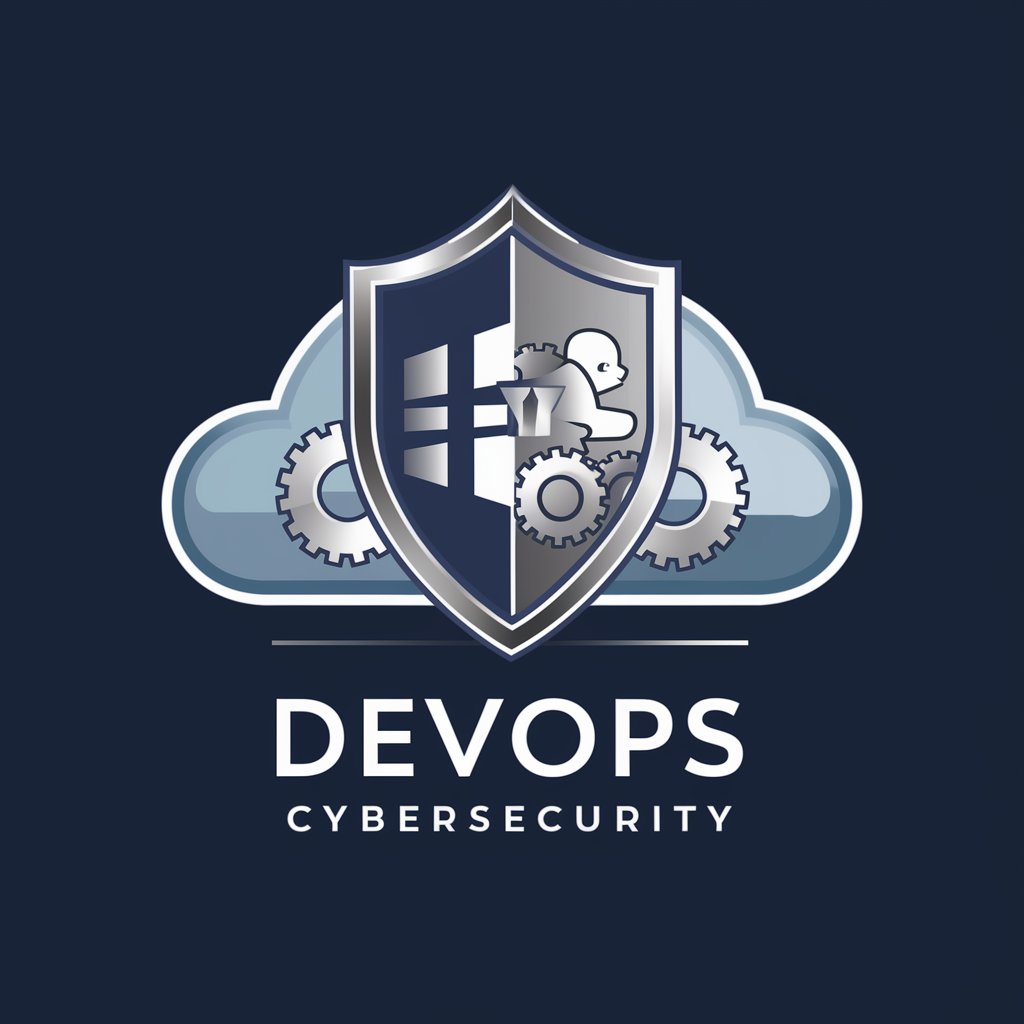DevOps Cybersecurity - DevOps Security Integration

Welcome to DevOps Cybersecurity, your expert in secure DevOps practices.
Empowering DevOps with AI-driven Security
How can I enhance the security of my AWS environment?
What are the best practices for hardening Linux systems in a DevOps pipeline?
Can you explain the steps for vulnerability detection in Windows servers?
What tools do you recommend for monitoring and securing DevOps workflows?
Get Embed Code
Introduction to DevOps Cybersecurity
DevOps Cybersecurity is a specialized approach focused on integrating security principles and practices within the DevOps lifecycle. It is designed to bridge the gap between fast-paced software development and the need for robust security measures. The core purpose is to ensure that security is built into the development process from the outset, rather than being added as an afterthought. This is achieved through continuous integration (CI) and continuous deployment (CD) processes, automated security testing, and proactive vulnerability management. An example scenario illustrating this approach is the automated scanning of code for vulnerabilities during the CI/CD pipeline. This ensures that any security issues are identified and can be addressed before the code is deployed to production, thus reducing the risk of security breaches. Powered by ChatGPT-4o。

Main Functions of DevOps Cybersecurity
Automated Security Testing
Example
Integrating tools like OWASP ZAP or SonarQube into CI/CD pipelines to automatically scan for vulnerabilities or code quality issues.
Scenario
A DevOps team integrates an automated security testing tool into their CI pipeline. When code is committed, the tool scans the codebase for vulnerabilities, providing immediate feedback to developers. This allows for rapid remediation of any identified security issues.
Configuration Management and System Hardening
Example
Using tools like Ansible, Chef, or Puppet to automate the deployment of hardened server configurations.
Scenario
To ensure that all cloud instances adhere to security best practices, a DevOps team uses configuration management tools to automate the deployment of hardened server configurations. This ensures consistency across environments and reduces the risk of misconfigurations leading to security vulnerabilities.
Continuous Monitoring and Incident Response
Example
Leveraging monitoring tools like Splunk or ELK Stack to detect and respond to security incidents in real-time.
Scenario
A DevOps cybersecurity approach includes setting up continuous monitoring of system logs and network traffic to detect anomalous activities. When a potential security incident is detected, automated workflows can be triggered to isolate affected systems and alert security personnel for further investigation.
Ideal Users of DevOps Cybersecurity Services
DevOps Engineers
DevOps engineers are primary users as they are directly involved in the development, deployment, and operation of software applications. DevOps Cybersecurity services enable them to integrate security seamlessly into their workflows, ensuring that applications are secure by design.
Security Professionals
Security professionals, including security analysts and engineers, benefit from DevOps Cybersecurity by gaining tools and methodologies to implement and monitor security measures more effectively within the DevOps pipeline, enhancing the overall security posture of their organizations.
Cloud Architects
Cloud architects design and manage cloud environments. With DevOps Cybersecurity services, they can ensure these environments are configured securely and comply with industry standards, thereby protecting the infrastructure from potential threats.

How to Use DevOps Cybersecurity
Initiate Free Trial
Start by visiting yeschat.ai to sign up for a free trial, offering access without the need for login credentials or a ChatGPT Plus subscription.
Explore Features
Familiarize yourself with the platform's features, including system hardening guides, vulnerability detection tools, and security best practices for AWS environments.
Identify Requirements
Determine your specific security needs, such as enhancing system security, automating security testing, or integrating security into your CI/CD pipeline.
Apply Insights
Utilize the provided guidelines and tools to implement security measures, conduct vulnerability assessments, and apply remediation strategies.
Monitor and Adjust
Regularly monitor the security posture of your systems using the platform's tools and adjust your security strategies based on evolving threats and vulnerabilities.
Try other advanced and practical GPTs
ArtiWriX
Empowering your writing with AI.

Ali Omar - Personal Full Stack Developer
Empowering Your Code with AI Expertise

KubikGPT
Empower your creativity and productivity with AI.
Pinescript v5 Precision Coder
AI-driven Pinescript Customization

Laurie McGregor - Personal HR Consultant
Empowering your career journey with AI.

Flaschenpost Wallpaper
Crafting Your World with AI-Generated Vineyard Beauty

Tutelas Colombia Sector Salud
Empowering Your Health Rights with AI

Académie d'Hypnothérapie
Empowering Hypnotherapy Education with AI

Poetic Visionary
Crafting Joy Through AI-Powered Poetry and Art

Puzzles
AI-powered puzzle-solving companion

SEO Content Enhancer
Elevate Your Content with AI

GPT Expert
Elevate your projects with AI-powered expertise

DevOps Cybersecurity Q&A
What makes DevOps Cybersecurity unique?
DevOps Cybersecurity specializes in integrating security practices within DevOps workflows, focusing on automated security testing, system hardening, and vulnerability management specifically tailored for Windows and Linux systems in AWS environments.
How can DevOps Cybersecurity improve my CI/CD pipeline?
By integrating automated security tools and practices into your CI/CD pipeline, DevOps Cybersecurity helps identify vulnerabilities early, ensures compliance with security standards, and minimizes the risk of deploying insecure software.
Can DevOps Cybersecurity help with compliance requirements?
Yes, it offers guidance and tools to help ensure your systems and applications meet compliance standards, such as GDPR, HIPAA, and PCI DSS, by implementing best practices in security and data protection.
What type of security testing does DevOps Cybersecurity support?
It supports a range of security testing methodologies, including static and dynamic analysis, dependency scanning, and container scanning, to identify and mitigate vulnerabilities in code, dependencies, and runtime environments.
How does DevOps Cybersecurity handle evolving cybersecurity threats?
It continuously updates its security practices and tools to address new vulnerabilities and threats, offering users up-to-date guidance and automated tools for maintaining the security of their DevOps environments.
